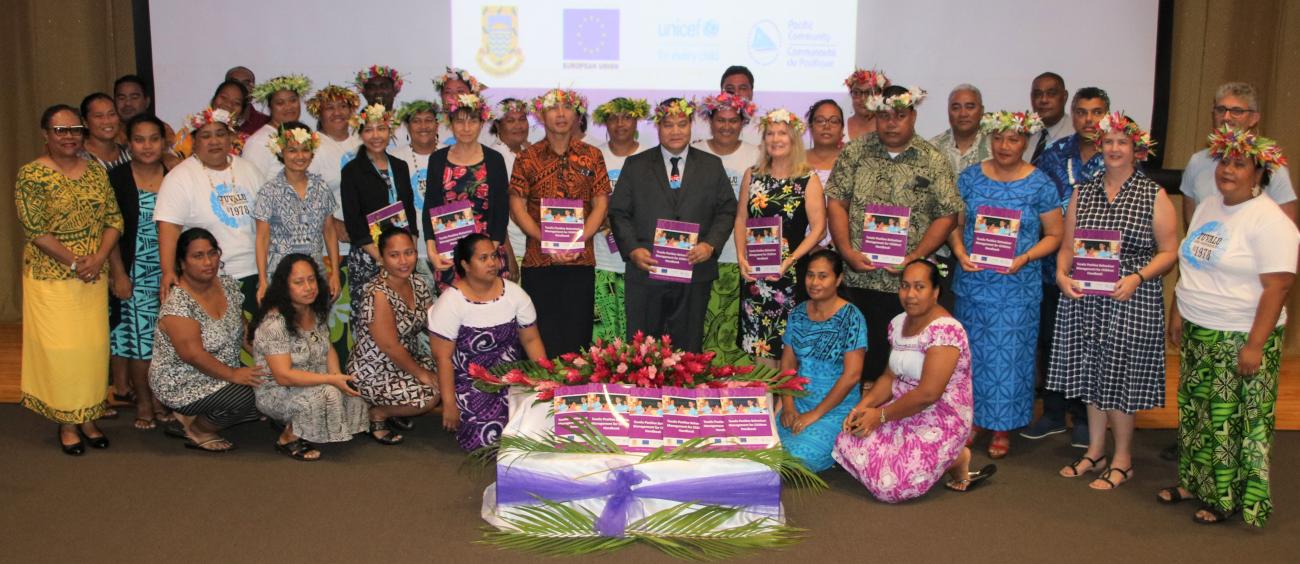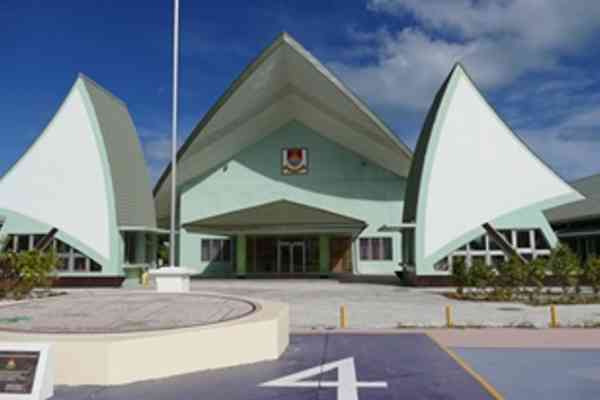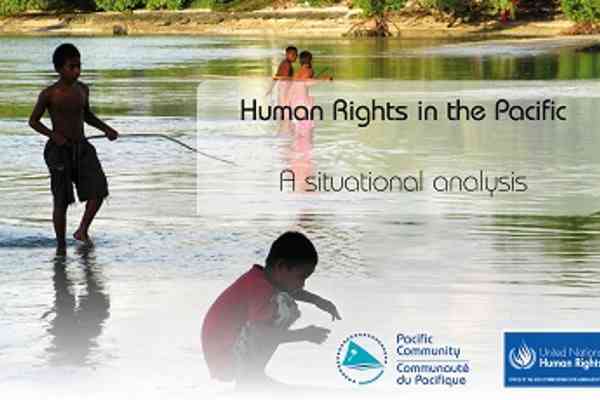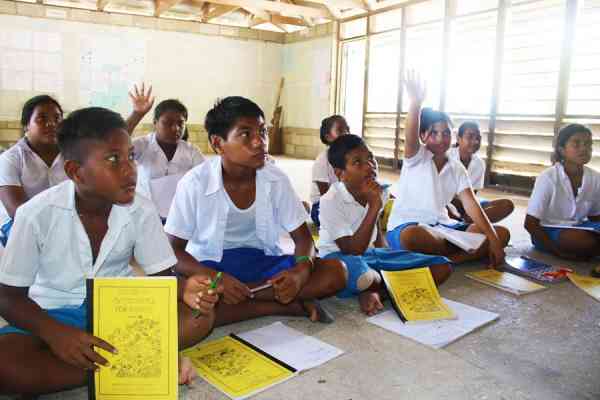The Pacific Community (SPC) in collaboration with UNICEF launched two videos and a handbook resource for teachers in Tuvalu on positive behaviour management of children in schools on 9 December 2020 as part of the 16 Days of Activism to End Violence Against Women and Children campaign.
The Convention on the Rights of the Child (CRC) is one of the first conventions ratified by the Government of Tuvalu in 1995 and following that corporal punishment has been banned in all schools in Tuvalu.
Both the videos and the handbook resource have been developed as an essential guide for teachers in Tuvalu to help them create an enabling environment for children in the classroom which promotes inclusivity, non-violence and non-discrimination as an alternative and a more positive means of behaviour management.
The resources have been produced as part of the Pacific Partnership to End Violence Against Women and Girls (Pacific Partnership)’s Social Citizenship Education (SCE) programme, led by SPC’s Human Rights and Social Development (HRSD) division. The SCE programme equips school students and communities to understand and apply human rights and responsibilities, gender equality, inclusion and non-violence. The Pacific Partnership is funded primarily by the European Union, and the Governments of Australia and New Zealand, and UN Women, and is led by the Pacific Community (SPC), UN Women and the Pacific Islands Forum Secretariat.
His Excellency, Temate Melitiana, High Commissioner of Tuvalu while officiating at the launch stated that corporal punishment is a controversial subject in Tuvalu and indeed across the Pacific, even though the research is extremely telling and very clear and consistent about the negative effects on children.
HE Melitiana said while corporal punishment was banned in schools in Tuvalu teachers did not have the necessary tools and knowledge on alternative and more positive means of behaviour management.
“Hence, the SCE programme in Tuvalu commissioned two educational resources on corporal punishment and positive behaviour management in schools,” he noted.
According to Dr Stuart Minchin, SPC’s Director General, corporal punishment of students is a destructive form of discipline that is ineffective in producing a conducive learning environment in schools.
“Corporal punishment doesn’t work - ultimately, it can create more problems than it solves. Children can feel anger at being punished and that anger can manifest itself later in life in antisocial behaviour and violence,” Dr Minchin explained.
He added that the videos and handbook give a range of techniques that teachers, parents and other adults can use to address behaviour in children without using corporal punishment.
“I encourage [everyone] to learn from the strategies contained in the handbook and these videos to develop behaviour management techniques that will support our children to grow to their full potential,” Dr Minchin said.
Miles Young, Director HRSD, highlighted that children learn behaviours from their teachers and parents – those who use physical discipline may be teaching the child to adopt these behaviours – to resolve conflicts with physical aggression.
“Violence is never the way to resolve an issue. The alternative to corporal punishment, positive behaviour management, emphasises prevention, support for students, avoiding confrontation with students, and a focus on the development of values, relationships and skill building,” Young said.
Speaking at the launch, Dr Erja Askola, Deputy Head of the European Union Delegation for the Pacific emphasized that prevention and shifting attitudes and mindsets around violence should be the cornerstone of any action.
“Attitudes and mindsets are not eternal. Raising public awareness and changing beliefs around the role of violence in educating children is possible. I can only applaud these joint efforts of the Pacific Partnership for addressing the root cause of violence and working on transforming harmful social norms that condone and perpetuate violence”, Dr. Askola said.
“Positive behaviour management is essential to ensure overall safety for children, so they are able to learn and grow to their full potential,” said Sheldon Yett, UNICEF Pacific Representative. “We thank our partners, the Government of Tuvalu, SPC and the European Union, for their efforts in creating safe learning spaces for school children.”
The Tuvalu positive behaviour management for children video and handbook is available on the SPC HRSD website here.



